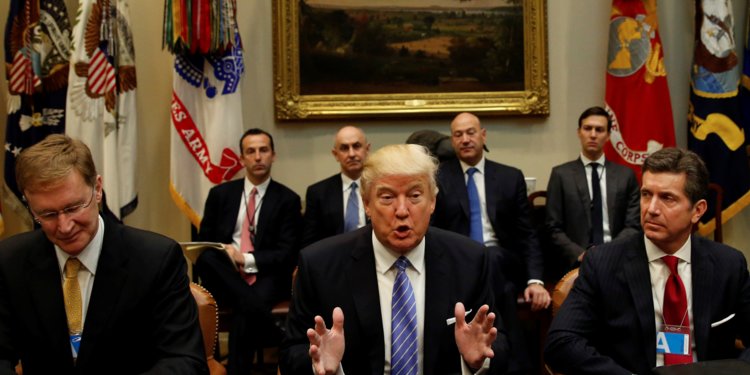How Trump Is Shaping The Next Global Recession

Forbes – American presidents’ economic policies tend to take time, often a decade or more, to feed into and affect the business cycle. Lyndon Johnson’s decision to debt finance the Vietnam war to avoid unpopular tax increase led to stagflation a decade later. The impact of Ronald Reagan’s supply side revolution was felt most strongly in the investment surge in the late 1990s that ended only with the dot-com bust. Donald Trump’s impact on the economy, however, will prove to be much more immediate. His policies have both raised the risks of a new global recession while seriously weakening the government’s ability to deal with it when it comes.
The current recovery is the longest on record, but also one of the weakest. And as in the nature of the business cycle, the longer its expansion, the closer it is to the next downturn. Over the 2017 to 2018 period, the economy charged ahead on a sugar rush fueled by Trump’s corporate tax cut, a massive stimulus just as the economy was running close to full capacity. Wall Street loved it and stock indexes reached new heights.
In the meantime, the U.S. Federal Reserve started to raise interest rates. In the coming 12 to 18 months, the sugar rush will wear off and attention will gradually shift back to economic fundamentals, which are far less robust than what the frothy equity markets may suggest. The risk of a recession will rise.
The risk may be higher than we think thanks to Trump’s continuous assault on multilateralism and his administration’s erratic policies, which has seriously deepened uncertainty in the global economy. When the herd instinct switches from risk-on to risk-off under conditions of uncertainty, any numbers of confluence of unanticipated events could easily trigger the next recession.
Apart from raising the risk of a recession, Trump has also made it much harder for the American government to deal with it when it happens. Trump’s fiscal spending, especially the tax cut, is on track to raise America’s fiscal deficit from 4.5% of GDP in 2018 to over 6% by 2020, even if no new tax cuts are enacted. This is a shockingly rapid increase and it means the government will have no fiscal power left to jump start the economy when the next recession hits.
